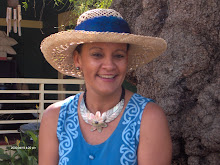This Land is your Land This Land is my Land
This Land is my Land, This Land is your Land
The early Hawaiian Land Tenure: Upon the arrival of Captain James Cook in 1778 the eight major Hawaiian islands were divided into several independent chiefdoms, each controlled by an ali’i nui or supreme chief. The ali’i nui of each island owned all of the lands in which they controlled. After selecting their land the ali’i nui would divide the remaining land amongst his warrior chiefs. The warrior chiefs would then divide the land in their possession to their followers or supporters. This practice continued all the way down to the native tenant. However, it was recognized by all of the people that the lands given by the ali’i could be taken away. It was also known that upon the death or defeat of the chief in your kingdom the lands could be re- apportioned.
The main landholding was the ahupua’a, a triangular slice of land running from the mountain in the center of an island to the seashore. Most ahupua’a contained all the resources necessary for life. Every ahupua’a owed taxes in the form of produce, crafts, and labor, to the chiefs who “owned” the land.
In 1824 King Kamehameha III was challenged by foreigners about the rights of owning land. The missionaries who arrived in the 1820 also strove to change the system of land tenure, so they could acquire lands in fee simple. The Great Mahele took place in 1848 in which time King Kamehameha III divided lands with 245 chiefs/ Konohiki’s. By 1850 all foreign residents obtain the right to own and sell land.
There has been many changes since The Great Mahele (Mahele Nui) which brings us to the concerns of many Hawaiians who believe that the state has not lived up to their obligations towards the revenues of ceded lands that are suppose to benefit native Hawaiians. In reading the article written by Susan Jaworoski I agree that it is important to identify ceded lands, and it’s purpose, but I also believe that revenues should be dispersed to benefit all Hawaiians not just what the government defines as “Native Hawaiians” such as The Hawaiian Homes Commission Act which the government disregarded the blood quantum request of no less than 1/32 by Prince Jonah Kūhiō Kalaniana’ole.
Work Cited
Paul Nāhoa Lucas. Orginal Land Titles from The Mahele Nui
Susan Jaworowski. Ceded Lands . Legislative Reference Bureau State of Hawaii,
LRB Notes No. 02-03 29 July 2002
The early Hawaiian Land Tenure: Upon the arrival of Captain James Cook in 1778 the eight major Hawaiian islands were divided into several independent chiefdoms, each controlled by an ali’i nui or supreme chief. The ali’i nui of each island owned all of the lands in which they controlled. After selecting their land the ali’i nui would divide the remaining land amongst his warrior chiefs. The warrior chiefs would then divide the land in their possession to their followers or supporters. This practice continued all the way down to the native tenant. However, it was recognized by all of the people that the lands given by the ali’i could be taken away. It was also known that upon the death or defeat of the chief in your kingdom the lands could be re- apportioned.
The main landholding was the ahupua’a, a triangular slice of land running from the mountain in the center of an island to the seashore. Most ahupua’a contained all the resources necessary for life. Every ahupua’a owed taxes in the form of produce, crafts, and labor, to the chiefs who “owned” the land.
In 1824 King Kamehameha III was challenged by foreigners about the rights of owning land. The missionaries who arrived in the 1820 also strove to change the system of land tenure, so they could acquire lands in fee simple. The Great Mahele took place in 1848 in which time King Kamehameha III divided lands with 245 chiefs/ Konohiki’s. By 1850 all foreign residents obtain the right to own and sell land.
There has been many changes since The Great Mahele (Mahele Nui) which brings us to the concerns of many Hawaiians who believe that the state has not lived up to their obligations towards the revenues of ceded lands that are suppose to benefit native Hawaiians. In reading the article written by Susan Jaworoski I agree that it is important to identify ceded lands, and it’s purpose, but I also believe that revenues should be dispersed to benefit all Hawaiians not just what the government defines as “Native Hawaiians” such as The Hawaiian Homes Commission Act which the government disregarded the blood quantum request of no less than 1/32 by Prince Jonah Kūhiō Kalaniana’ole.
Work Cited
Paul Nāhoa Lucas. Orginal Land Titles from The Mahele Nui
Susan Jaworowski. Ceded Lands . Legislative Reference Bureau State of Hawaii,
LRB Notes No. 02-03 29 July 2002

